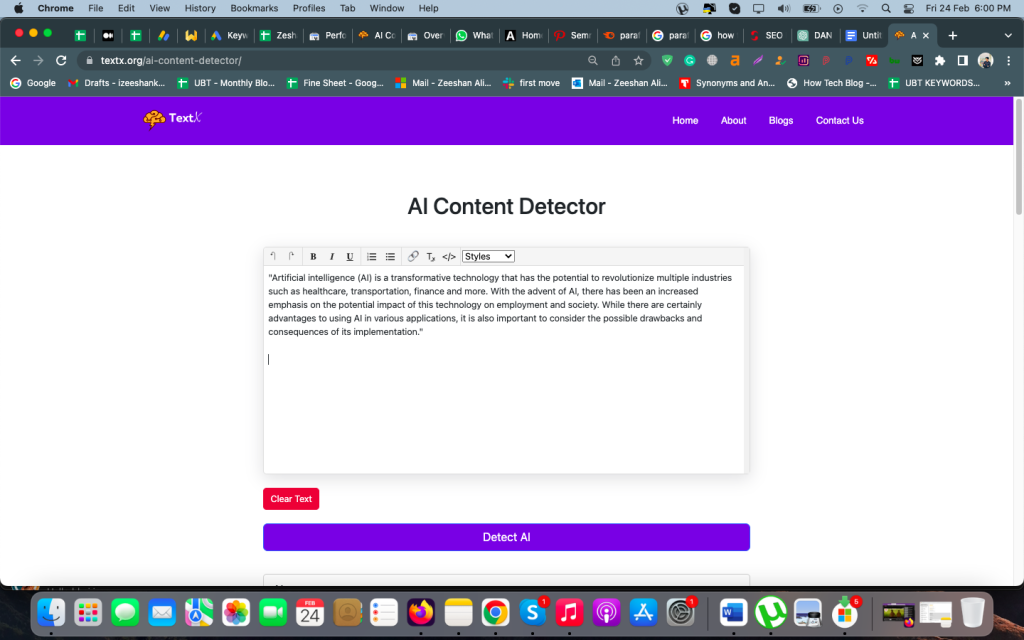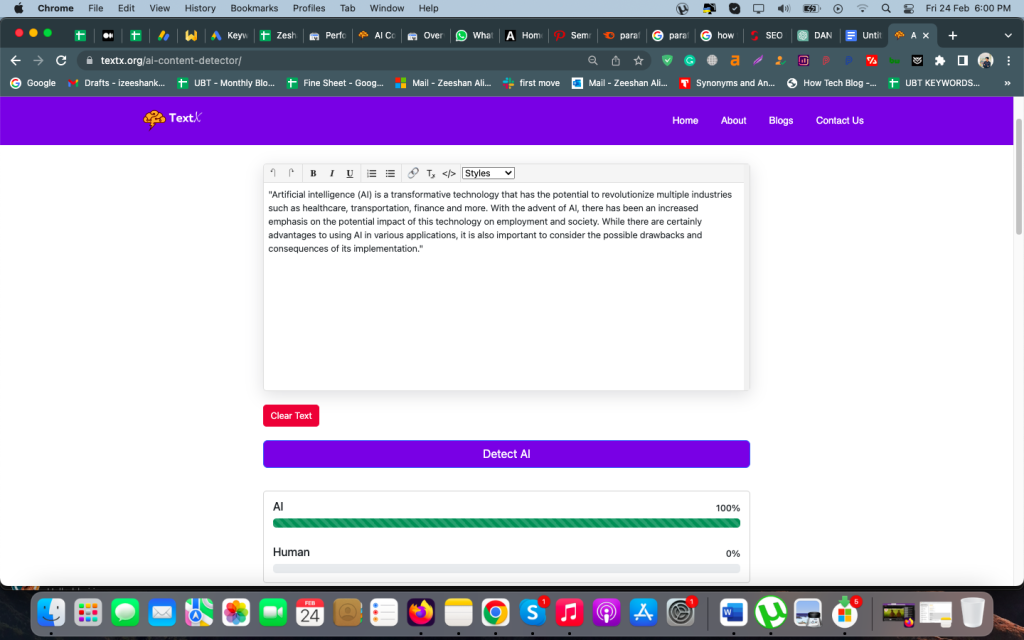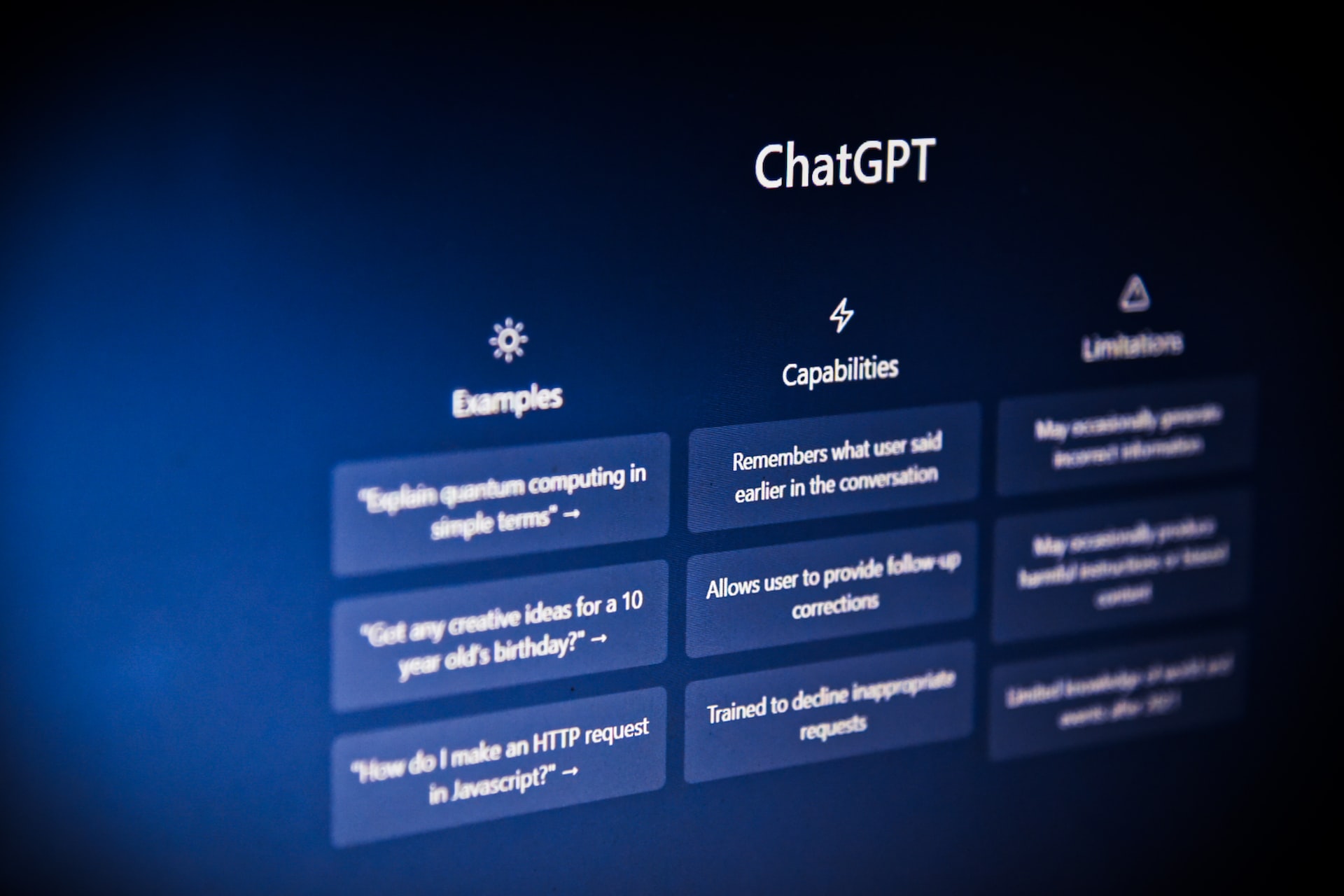Exploring the Pros and Cons of Using AI Generated Content for SEO
The rise of artificial intelligence has drastically changed the way we approach content creation for search engine optimization (SEO). With the development of sophisticated AI algorithms, it’s now possible to generate content that is almost indistinguishable from human-written content. AI-generated content offers many benefits, such as increased efficiency, reduced costs, and improved scalability, making it an attractive option for many businesses.
Quick Links
However, like any technology, there are both advantages and disadvantages to using AI-generated content for SEO. On the one hand, AI-generated content can help businesses create large volumes of high-quality content in a short amount of time, which can be a huge advantage in the competitive world of SEO. AI algorithms can also analyze data from various sources to create highly personalized and targeted content that is more likely to resonate with readers.
On the other hand, there are also some potential drawbacks to using AI-generated content for SEO. One of the main concerns is the quality of the content produced by AI algorithms. While AI can create content that is grammatically correct and free of spelling errors, it may lack the nuance, creativity, and tone that is typically associated with human-written content.
Another potential issue with AI-generated content is that it may not always be accurate or reliable. While AI algorithms are capable of processing vast amounts of data, they may not always be able to interpret that data correctly, leading to inaccuracies or errors in the content generated.
In this article, we’ll explore the pros and cons of using AI-generated content for SEO in more detail. We’ll discuss the benefits of using AI-generated content, as well as some of the potential risks and challenges. We’ll also provide some tips and strategies for mitigating these risks and using AI-generated content effectively for SEO.
Definition of AI-Generated Content
AI-generated content refers to text, images, videos, or any other type of content created using artificial intelligence. AI algorithms use natural language processing and machine learning to generate content that mimics human writing. These algorithms can create anything from news articles to product descriptions, social media posts, and even entire websites.
Pros of Using AI-Generated Content for SEO:
- Saves time and resources: AI-generated content can save businesses time and resources. It can create content quickly, reducing the need for human writers to write from scratch.
- Consistency: AI-generated content ensures consistency across all content pieces. It can follow a particular style or tone of voice, making it easier to maintain a consistent brand voice.
- SEO optimization: AI-generated content can be optimized for SEO, making it easier to rank higher on search engine results pages (SERPs). AI algorithms can analyze search data and produce content that is more likely to rank for specific keywords.
Cons of Using AI-Generated Content for SEO:
- Lack of originality: AI-generated content lacks the creativity and originality that human writers can bring to the table. It can produce content that is bland and uninspiring, which can hurt a business’s reputation.
- Limited understanding: AI algorithms can only understand language and data that has been programmed into them. They cannot understand context, emotions, or tone, which can result in inaccurate or inappropriate content.
- Plagiarism: AI-generated content can be plagiarized from other sources. It can create duplicate content, which can harm a business’s SEO efforts.
- Google’s Penalty: Either Google will not index your pages, even if they do, they will still cause issues for you if you just copy and use AI generated text and claim it as yours. You might also face issues in getting Adsense approval and even in severe cases, you site may face penalty as well. So, this means that AI content is a no-no.
How to Mitigate the Risks of AI-Generated Content for SEO:
As more and more businesses turn to AI-generated content for their SEO needs, it’s important to consider the potential risks involved. While AI can produce content at scale and at a faster rate, it’s not always perfect. Poorly written content can not only harm your SEO efforts, but also your brand’s reputation. However, there are steps you can take to mitigate the risks of AI-generated content. In this post, we’ll explore some of these steps in detail.
Use High-Quality AI Tools
The first step in mitigating the risks of AI-generated content is to use high-quality AI tools. Not all AI tools are created equal, so it’s important to do your research and choose one that has a good reputation for producing high-quality content. Look for tools that allow you to customize the output, so you can fine-tune the content to match your brand’s voice and style.
Train Your AI Tools
Another way to mitigate the risks of AI-generated content is to train your AI tools. While AI tools can produce content without any human intervention, they can also be trained to produce more accurate and relevant content. By training your AI tools, you can help ensure that the content they produce is aligned with your brand’s voice and style.
Proofread and Edit Your Content
Even the best AI tools can make mistakes. To mitigate the risks of AI-generated content, it’s important to proofread and edit your content before publishing it. This can help catch any errors or inconsistencies in the content, and ensure that it’s high-quality and aligned with your brand’s voice and style.
Use AI Text Detectors
One of the most important steps in mitigating the risks of AI-generated content is to use AI text detectors. These tools can help determine whether a text was written by a bot or a human, which is important for several reasons. Here is an example of how these AI detectors work:
Text Generated by ChatGPT:”Artificial intelligence (AI) is a transformative technology that has the potential to revolutionize multiple industries such as healthcare, transportation, finance and more. With the advent of AI, there has been an increased emphasis on the potential impact of this technology on employment and society. While there are certainly advantages to using AI in various applications, it is also important to consider the possible drawbacks and consequences of its implementation.”

Now we put this text in a AI detector named as TextX and hit “Detect AI” button:

You can see the results, this tool can easily detect any text generated by an AI writing tool or a language model like ChatGPT. Just like plagiarism, you should ensure that your text is not AI to avoid any issues like penalty from Google.
Combine AI with Human Expertise
Finally, it’s important to remember that AI-generated content is not a replacement for human expertise. While AI tools can produce content at scale and at a faster rate, they cannot replace the creativity, insight, and expertise of a human writer.
To mitigate the risks of AI-generated content, it’s important to combine AI with human expertise. This can help ensure that your content is high-quality, relevant, and aligned with your brand’s voice and style.
Conclusion:
AI-generated content has its advantages and disadvantages when it comes to SEO and content marketing. While it can save time and resources, it lacks the originality and understanding that human writers can bring to the table. Businesses should use AI-generated content carefully and always review and edit it before publishing. By mitigating the risks, businesses can use AI-generated content to improve their SEO efforts and content marketing strategies.
What Is WooCommerce Product Slider and Why Your Store Needs It
Why Do Product Images Matter So Much in Online Stores? When someone visits an online store the…
0 Comments9 Minutes
How to Streamline Your Customers’ Shopping Experience?
The goal for any online store is to make shopping as smooth as possible. When visitors move…
0 Comments8 Minutes
Strengthening Brand-Customer Relationships Through Gamified Loyalty Programs
Creating lasting connections with customers has become increasingly vital as the marketplace grows…
0 Comments6 Minutes
How to Use SEO and SEA Together in Search Engine Marketing
In digital marketing, search engine marketing (SEM) plays a critical role in improving online…
0 Comments10 Minutes
Content Marketing Growth Hacks: Real Shortcuts to Drive Traffic
Are you still lagging in content marketing? Sticking to these old strategies seems…
0 Comments10 Minutes
How to Build a Strong Local Following Using Social Media Marketing
In the days of likes, shares, and stories, local businesses have a golden opportunity to create…
0 Comments9 Minutes
Why WooCommerce is the Best Choice for Your Online Store?
WooCommerce stands out as a top option for anyone looking to build an online store. This platform…
0 Comments8 Minutes
How to Use AI-Powered SEO Tools for WordPress eCommerce
SEO is a critical factor in the success of any e-commerce WordPress store. As competition…
0 Comments11 Minutes








